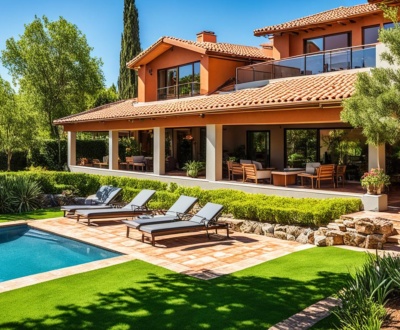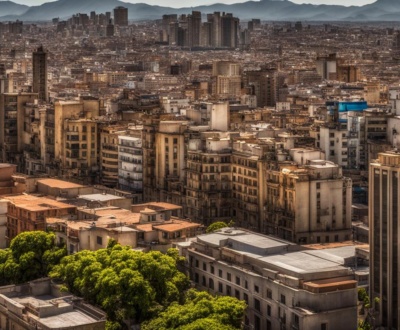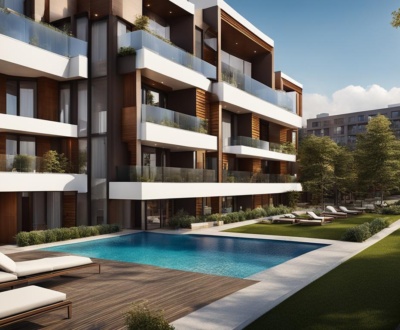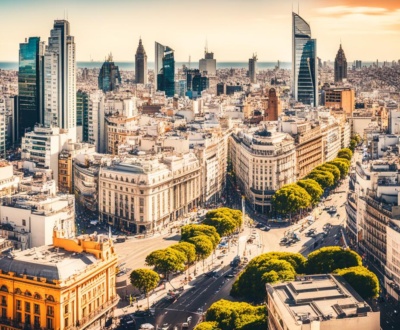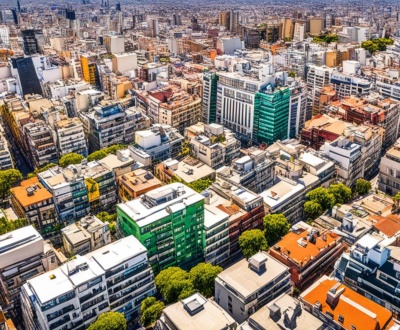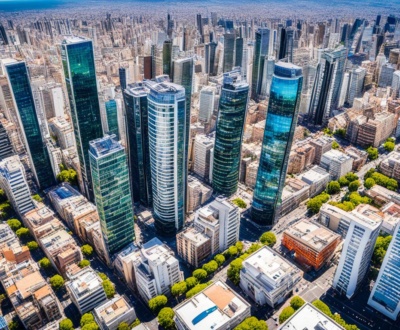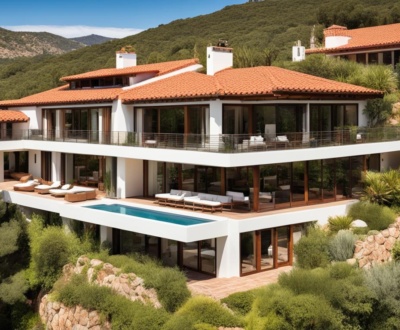Guide to Affordable Housing in Argentina
Finding affordable housing in Argentina can be a daunting task, especially when considering factors like inflation and garantias. This comprehensive guide aims to simplify the process and provide valuable information on where to look for low-cost housing and affordable accommodation in Argentina.
Whether you’re a local resident looking for a more affordable place to live or an expat considering a move, navigating the housing market in Argentina can be challenging. However, with the right resources and knowledge, you can find options that fit your budget and meet your needs.
In this guide, we’ll explore various aspects of affordable housing in Argentina, including where to look for apartments, the cost of living in different neighborhoods, key rental terms to know, renting laws, the renting process, and more. We’ll also discuss the pros and cons of living in Argentina as an expat, helping you make an informed decision about your housing options.
So, whether you’re dreaming of a cozy apartment in Buenos Aires or a tranquil home in the countryside, this guide will provide you with the tools and information to find affordable housing in Argentina.
Where to Look for Apartments in Argentina
When searching for apartments in Argentina, it’s important to explore the various options available. While Airbnb may be popular in other countries, it can be more complicated in Argentina due to inflation. Thankfully, there are local websites that cater specifically to apartment rentals. These websites, such as Mercado Libre, ZonaProp, Argenprop, and Alternativa, offer a wide range of listings from both individual owners and property management companies.
By utilizing these rental websites, you can find apartments in different neighborhoods at varying price points. Whether you’re looking for a cozy studio or a spacious three-bedroom, these platforms provide options that cater to different budgets and preferences.
One advantage of using these local rental websites is that they often offer more affordable options compared to Airbnb, especially for long-term stays. Additionally, you’ll have a wider selection of properties to choose from, allowing you to find the perfect apartment that suits your needs.
Benefits of Using Local Rental Websites:
- Extended rental options: find apartments available for short-term or long-term leases
- Wide range of choices: explore listings from different neighborhoods and property types
- Affordable pricing: discover apartments that fit within your budget
- Direct contact with owners or property management companies: easily communicate and negotiate rental terms
“These local rental websites are a treasure trove for anyone searching for apartments in Argentina. From cozy studios to luxurious penthouses, there is something for everyone. I found my dream apartment in Buenos Aires through one of these platforms, and it was a seamless experience from start to finish.”
Cost of Apartments in Argentina
When considering a move to Argentina, it’s essential to understand the cost of living and apartment prices in different neighborhoods. In Buenos Aires, for instance, one-bedroom apartments can range from as low as $200 to as high as $1500 per month. The price variation depends on factors such as location, amenities, and overall demand. It’s worth noting that upscale neighborhoods like Belgrano and Palermo tend to have higher apartment prices, while neighborhoods like San Telmo and Almagro offer more affordable options.
Table: Apartment Prices in Different Neighborhoods
| Neighborhood | Average Price Range for One-Bedroom Apartments |
|---|---|
| Belgrano | $800 – $1500 |
| Palermo | $700 – $1300 |
| San Telmo | $500 – $1000 |
| Almagro | $400 – $800 |
It’s important to keep in mind that apartment prices are influenced by various factors, including inflation and the fluctuation of the peso/dollar exchange rate. Therefore, it’s advisable to research the current market prices and consult with local real estate agents or property websites before making any decisions. Taking into account the cost of living in Argentina and apartment prices will help you plan your budget and find affordable housing that suits your needs.
Key Words to Know
When searching for apartments in Argentina, it’s important to familiarize yourself with key words and phrases related to rentals. Here are some essential terms to help you communicate and navigate the rental process:
Rental Terminology
- Alquiler – Rent
- Alquiler Temporal – Seasonal Rent
- Ubicacion – Location
- Expensas – Expenses
- Garantia – Guarantee
Apartment Amenities
It’s important to consider the amenities offered by apartments in Argentina. Here are some common amenities you may come across:
Amenities – Facilities provided by an apartment building, such as a swimming pool, gym, or parking.
Understanding these apartment rental terms and amenities will make your search for an apartment in Argentina much easier. Now let’s move on to the renting laws and regulations you should be aware of.
Renting Laws in Argentina
If you’re planning to rent long-term in Argentina, it’s important to be aware of the renting laws that govern tenant rights and rental contracts in the country. Understanding these laws can help protect your rights and ensure a smooth renting experience.
Tenancy Contracts
In Argentina, tenants are generally required to sign a 3-year rental contract with their landlords. This contract outlines the terms and conditions of the tenancy, including rental payment details, responsibilities of both parties, and any additional clauses agreed upon. It is essential to carefully review and understand the contract before signing to avoid any potential issues or misunderstandings.
Documentation Requirements
When entering into a rental agreement in Argentina, tenants are typically required to provide certain documents. These may include:
- Documento Nacional de Identidad (DNI): The national tax ID number or identification document.
- Proof of Income: Documentation that demonstrates the tenant’s ability to meet the rental payment obligations.
Additionally, landlords may require a garantia, which is someone who can vouch for the tenant and act as a guarantor in the case of default or damage to the property. The garantia is responsible for fulfilling the tenant’s obligations if they are unable to do so.
Legal Considerations
While there are specific renting laws in Argentina, it’s worth noting that enforcement and adherence to these laws may vary. Exceptions to the standard rental practices can occur, especially in informal rental agreements or when dealing with individual landlords. Therefore, it is essential to be cautious, seek legal advice if needed, and ensure that the rental agreement is fair and compliant with the applicable laws.
To better understand your rights as a tenant and the specific renting laws in Argentina, it is recommended to consult with a local lawyer or legal expert familiar with the current regulations.
Having a clear understanding of the renting laws in Argentina is crucial for a successful rental experience. By familiarizing yourself with the legal requirements and your rights as a tenant, you can confidently navigate the rental process and protect yourself from any potential issues that may arise.
The Renting Process in Argentina
The renting process in Argentina can be an exciting yet challenging experience. Understanding the steps involved and being prepared can help make the apartment search and renting process more efficient and successful.
Apartment Search Process Argentina
When looking for apartments in Argentina, the internet is a valuable resource. Begin by exploring popular online platforms like Mercado Libre, ZonaProp, Argenprop, and Alternativa. These websites provide a wide range of apartment listings from owners and property management companies. Make use of search filters to narrow down options based on your preferences and budget.
Once you find potential apartments, it’s essential to reach out to the owner or intermediary promptly. Many listings provide contact details, and platforms like WhatsApp are commonly used for communication. Share your interest in the apartment and inquire about viewing opportunities.
Apartment Visits Argentina
Visiting apartments is a crucial step in the renting process. Plan appointments with owners or intermediaries to view the properties in person. During the visits, take photos and videos to keep track of the different apartments you see. This will help you compare and make informed decisions later.
“Visiting the apartments in person gives you a better sense of the space, neighborhood, and overall condition. Don’t hesitate to ask questions and take your time to evaluate the suitability of each apartment.”
Renting Process Argentina
For long-term rentals, additional document gathering and communication with the owner or intermediary may be necessary before signing the contract and making the payment. Be prepared to provide documents such as proof of income and potentially find a garantia (someone who can vouch for you).
Once all the necessary steps are completed, you can proceed to sign the rental contract and make the required payment to secure the apartment. Ensure that you fully understand the terms and conditions outlined in the contract before signing.
Remember, renting an apartment in Argentina requires careful consideration and attention to detail. Taking the time to search for apartments, visit them, and navigate the renting process will help you find a place that meets your needs and ensures a smooth transition into your new home.
After You Move In
Once you’ve moved into your new apartment in Argentina, it’s time to start furnishing it and making it feel like home. Whether you’re looking for stylish furniture or budget-friendly options, there are plenty of options available. One popular area for furniture shopping in Argentina is Avenida Belgrano, located in the Balvanera neighborhood. Here, you’ll find a wide range of shops and stores offering diverse furniture styles to suit every taste and budget.
When shopping for furniture in Argentina, it’s important to plan ahead and allow for delivery or pick-up arrangements. Ordering furniture may take some time, especially if you’re looking for custom pieces or specific designs. By planning ahead and considering the lead time for furniture delivery, you can ensure that your new apartment is fully furnished and ready for you to enjoy.

Furniture Shopping in Avenida Belgrano
Avenida Belgrano in the Balvanera neighborhood is a renowned hub for furniture shopping in Argentina. It offers a wide variety of options to suit different tastes and budgets. Whether you’re looking for modern and contemporary pieces or classic and antique designs, you’ll find an extensive range of furniture stores to choose from.
From large department stores to smaller boutique shops, Avenida Belgrano has it all. You can browse through different styles of furniture, ranging from minimalist to ornate, and find options that fit seamlessly with your apartment’s decor. The street is known for its vibrant atmosphere and friendly merchants, making furniture shopping a pleasant and enjoyable experience.
Planning Ahead for Furniture Delivery
When buying furniture for your new apartment in Argentina, it’s important to keep in mind that delivery times may vary. Some retailers offer same-day or next-day delivery, while others may require a longer lead time, especially for custom-made or imported pieces.
To avoid any delays or inconvenience, it’s advisable to plan ahead and coordinate the delivery or pick-up arrangements. Consider the availability of the furniture you want, the estimated delivery times, and whether the retailer offers assembly services. By planning ahead, you can ensure a smooth and hassle-free experience when furnishing your new apartment in Argentina.
| Advantages | Considerations |
|---|---|
| Wide range of furniture styles | Delivery times may vary |
| Options for every budget | Coordination of delivery or pick-up required |
| Friendly and vibrant shopping atmosphere | Availability of custom or specific pieces |
Argentina’s Relaxed Immigration Laws
Argentina offers expats an inviting environment with its relatively relaxed immigration laws. This South American country welcomes foreigners and provides opportunities for them to live and stay without excessive bureaucratic hurdles.
For a period of time, it is possible to live in Argentina without proper paperwork. This flexibility can be beneficial for those who may want to experience the country before committing to the residency process. However, it’s important to understand the legal implications of this and ensure compliance with any restrictions or time limits.
For expats seeking a more structured stay, Argentina offers various visa options. For example, the digital nomad visa is designed for individuals who work remotely and want to reside in Argentina temporarily. This visa allows expats to enjoy the vibrant culture and lifestyle while continuing to work and earn a living.
Additionally, visa extensions are available for those who plan to stay longer in Argentina. These extensions provide the opportunity to extend your stay, giving you more time to explore the country and immerse yourself in the local community.
However, if your goal is to settle in Argentina permanently, it is essential to understand the residency requirements. The government has specific guidelines and processes in place to obtain permanent residency. This may include demonstrating sufficient financial means, proving employment, or even marrying an Argentine citizen. It’s crucial to consult official sources or seek legal advice to ensure you comply with the residency requirements and understand the rights and obligations that come with becoming a permanent resident.
Argentina’s relaxed immigration laws make it an attractive destination for expats seeking a new adventure or a place to call home. Whether you’re interested in a temporary stay or wish to establish permanent residency, understanding and following the immigration laws and regulations is key to a smooth and successful transition.
Visa Runs and Overstaying
Some expats in Argentina opt for visa runs, where they leave the country and return to renew their tourist visa. However, this practice is not recommended as it can cause issues with immigration officers. Overstaying the visa and paying the fine upon departure is a more straightforward option for staying longer in Argentina. It’s essential to be aware of the rules and consequences associated with visa runs and overstaying to avoid any legal complications.
While visa runs may seem like a convenient way to extend your stay in Argentina, they can raise suspicion with immigration authorities. Engaging in frequent visa runs can lead to stricter scrutiny and potential denial of entry into the country. It’s important to remember that Argentina’s immigration laws are in place to regulate the duration of foreign visitors’ stays and ensure the country’s security.
If you find yourself in a situation where your tourist visa is about to expire and you wish to stay longer in Argentina, overstaying the visa and paying the associated fine is a straightforward alternative. This option allows you to extend your stay without the risk of immigration issues. However, it’s crucial to be mindful of the consequences and ensure compliance with the immigration regulations.
Understanding the Consequences
Overstaying your tourist visa in Argentina comes with certain implications. One immediate consequence is the requirement to pay a fine upon departure. The amount of the fine may vary based on the length of your overstay and is determined by the immigration authorities. The fine is typically payable at the airport when you leave the country.
Additionally, overstaying your visa may affect your future eligibility for other types of visas or residency permits in Argentina. Immigration authorities take into account your compliance with previous visa regulations when considering future applications. It’s crucial to understand that repeated and intentional visa violations can negatively impact your immigration status and limit your options in the future.
It’s important to consult with a knowledgeable immigration lawyer or seek guidance from official government sources to fully understand the legal implications and consequences of visa runs and overstaying. Doing so will help ensure that you make informed decisions regarding your stay in Argentina and avoid any unnecessary complications.
Key Takeaways:
- Visa runs, or leaving the country and returning to renew a tourist visa, are not recommended in Argentina.
- Overstaying the visa and paying the associated fine upon departure is a more straightforward option for extending your stay.
- Visa runs can raise suspicion with immigration authorities and may lead to denial of entry.
- Overstaying your visa has consequences, including the requirement to pay a fine and potential impact on future visa applications.
- Seek guidance from immigration professionals to fully understand the legal implications and consequences.
Cost of Living in Argentina
The cost of living in Argentina can vary depending on several factors, including location, lifestyle, and currency exchange rates. While Argentina offers affordable housing options and a relatively low cost of rent, it’s important to consider other expenses that contribute to the overall cost of living in the country.
When calculating living expenses in Argentina, it’s essential to take into account healthcare costs, transportation expenses, and everyday necessities such as groceries and utilities. These additional costs can significantly impact your budget and determine the feasibility of maintaining an affordable lifestyle in Argentina.
Healthcare costs in Argentina can be relatively affordable compared to other countries. The country has a robust public healthcare system, known as PAMI, which provides coverage for retirees and those who contribute to the social security system. Private healthcare options are also available, and the cost of private health insurance varies depending on factors such as age, coverage, and pre-existing conditions.
Transportation expenses in Argentina can be manageable depending on your location and lifestyle. The public transportation system, including buses and subways, is relatively affordable and extensive in major cities like Buenos Aires. Alternatively, owning a car or using ride-sharing services may incur additional costs such as fuel, parking fees, and insurance.
Everyday necessities, such as groceries, utilities, and dining out, can also impact the overall cost of living in Argentina. The price of groceries varies depending on the neighborhood and the type of stores you frequent. Local markets and smaller grocery stores typically offer more affordable options compared to larger supermarkets. Utilities, including electricity, gas, and water, are usually reasonable but can vary depending on your usage and location.
Creating a budget and planning accordingly is crucial to maintaining a comfortable and affordable lifestyle in Argentina. By assessing your financial situation and considering the various expenses involved, you can make informed decisions and ensure that your cost of living aligns with your income and desired lifestyle.
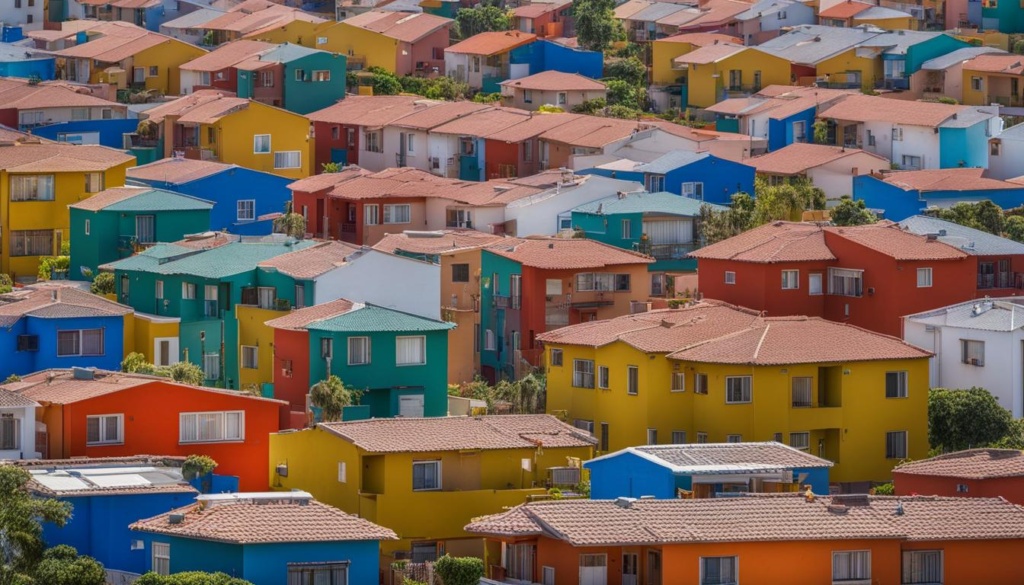
Pros and Cons of Living in Argentina
Living in Argentina as an expat offers a unique experience with its own set of advantages and challenges. Let’s explore the pros and cons of embracing the Argentina lifestyle.
Pros
One of the major highlights of living in Argentina is the availability of affordable housing options. Whether you prefer a cozy apartment in a bustling neighborhood or a spacious house in the suburbs, you can find a place that suits your budget. Additionally, the relaxed lifestyle in Argentina allows you to enjoy a slower pace of life, savoring the simple pleasures and taking time to appreciate the vibrant culture and traditions.
Another advantage of expat life in Argentina is the strong sense of community. Argentinians are known for their warm hospitality, welcoming expats with open arms. From neighborhood gatherings to lively social events, you’ll have plenty of opportunities to connect with locals and fellow expats, building meaningful relationships and forging a sense of belonging.
Cons
While there are many positives, it’s essential to consider the challenges of living in Argentina. Inflation can be a significant concern, affecting the cost of goods and services. It’s important to factor in these fluctuations when budgeting and planning your finances, ensuring you can maintain a comfortable lifestyle.
Bureaucracy is another aspect that expats may encounter when navigating life in Argentina. From visa applications to registering for utilities, the process can sometimes be time-consuming and require patience. Language barriers may also pose a challenge, especially if you’re not fluent in Spanish. However, with dedication and a willingness to learn, you can overcome these obstacles, embracing the multicultural environment and improving your language skills along the way.
In conclusion, expat life in Argentina offers affordable housing, a relaxed lifestyle, and a welcoming community. However, challenges such as inflation, bureaucracy, and language barriers should be considered. It’s important to weigh the pros and cons to determine if living in Argentina aligns with your goals and expectations. With careful planning and an open mindset, embracing the Argentina lifestyle can be a rewarding and enriching experience.
More from our blog
See all postsRecent Posts
- Argentina Property Management: Expert Care & Services February 2, 2024
- Understanding Argentina Real Estate Law Essentials February 2, 2024
- Argentina Luxury Apartments: Upscale Living February 1, 2024


